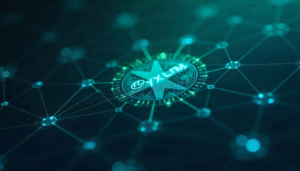Is Fairness in AI a Realistic Goal or Just an Ideal?
Can AI Be Truly Fair and Unbiased?
Artificial Intelligence (AI) has rapidly woven itself into the fabric of our lives. It suggests the movies we might love, filters spam from our inboxes, and even influences high-stakes decisions like job hiring and loan approvals. Yet as AI’s influence grows, one crucial question persists: Can AI ever be truly fair and unbiased?
Why AI Isn’t Inherently Neutral
It’s tempting to think of AI as purely logical and objective because it’s driven by algorithms and data. However, AI systems learn patterns from the data they’re fed—and that data often carries the biases and inequalities present in society.
Take, for instance, an AI tool used for hiring decisions. If it’s trained on past hiring data from a company that historically favored male employees, the AI might unconsciously replicate that bias, preferring male candidates even if equally qualified women apply. Likewise, facial recognition technologies have struggled with accuracy for people with darker skin tones, largely due to underrepresentation in training datasets.
How Bias Shows Up in AI
AI bias can emerge in various forms, including:
- Data Bias
If the data used to train AI lacks diversity or is skewed, the outcomes will reflect those imbalances. - Algorithmic Bias
The way algorithms are designed or tuned can introduce unintended biases, even with balanced data. - Societal Bias
AI systems often mirror the social prejudices that already exist, sometimes amplifying those biases further.
Why AI Bias Matters
Bias in AI isn’t merely a technical flaw—it has real-world impacts. For example:
- Inequitable Hiring Practices
AI tools might unintentionally exclude qualified candidates based on factors like race, gender, or age. - Discrimination in Financial Services
AI-driven credit assessments could unfairly deny loans to certain communities. - Issues in Law Enforcement
Biased facial recognition systems have contributed to wrongful arrests, disproportionately affecting people of color.
These consequences can erode public trust in AI and deepen existing social inequalities.
Can We Create Unbiased AI?
Completely eliminating bias from AI may never be achievable because all data comes from an imperfect world. Still, researchers and developers are making strides to reduce bias through:
- Diverse and Inclusive Data Collection
Using datasets that represent different groups and experiences. - Bias Audits and Testing
Routinely examining AI systems to detect and correct unfair outcomes. - Transparency and Explainability
Developing AI models that make it clear how decisions are made. - Adopting Ethical Standards
Establishing principles to guide responsible and fair AI development.
What Can Individuals Do?
While much work happens behind the scenes, individuals can contribute to the push for fairer AI by:
- Asking questions about how AI systems function and how they use personal data.
- Supporting regulations that prioritize transparency and accountability in AI.
- Encouraging businesses to invest in ethical AI practices.
Looking Ahead
AI offers tremendous promise to improve our lives and tackle significant challenges. However, for AI to be a force for good, it must be built and deployed with fairness in mind. Whether AI can ever be completely free of bias remains uncertain. What’s undeniable is the importance of striving for greater fairness and transparency.
So, the question remains:
Can AI truly be fair and unbiased?
Perhaps the more important question is: What steps are we willing to take to make it as fair and unbiased as possible?
Share this content:













